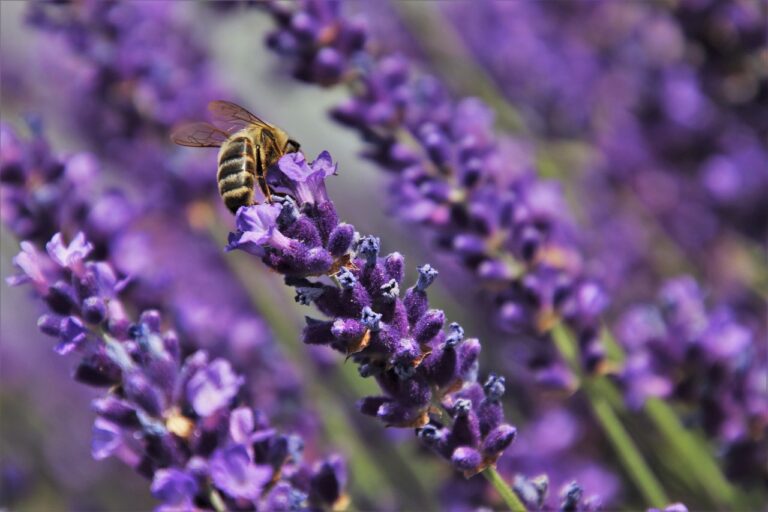Exploring Different Varieties of Rosemary Plants
Are you ready to dive into the world of rosemary plants? Get ready to explore the vast array of varieties available to you. From the common and dwarf varieties to the prostrate, upright, and even rare hybrids, there is a rosemary plant for every taste and preference. Whether you're looking for a culinary delight or an aromatic addition to your garden, these diverse rosemary plants are sure to serve you well. Let's embark on this exciting journey together!
Common Rosemary Varieties
There are five common varieties of rosemary plants that you can easily grow in your garden. Each variety has its unique characteristics, but all of them are known for their fragrant leaves and beautiful flowers. The first variety is 'Arp,' which is a hardy rosemary that can withstand cold temperatures. It has a strong flavor and is perfect for culinary uses. The second variety is 'Tuscan Blue,' known for its vibrant blue flowers and strong aroma. It is a versatile variety that can be used in cooking, as well as for ornamental purposes. The third variety is 'Prostratus,' which is a trailing rosemary that is great for ground cover or hanging baskets. It has a cascading growth habit and beautiful blue flowers. The fourth variety is 'Miss Jessop's Upright,' which has a tall and upright growth habit. It is a popular choice for landscaping due to its elegant appearance. The fifth variety is 'Spice Island,' which is a compact variety with a strong flavor and fragrance. It is perfect for small gardens or containers. Whichever variety you choose, rosemary plants are a delightful addition to any garden, providing both beauty and culinary delight.
Dwarf Rosemary Varieties
Discover the charm and versatility of dwarf rosemary varieties for your garden. These compact plants are perfect for small spaces or containers, making them ideal for urban gardens or balconies. Despite their smaller size, dwarf rosemary varieties still offer the same fragrant leaves and culinary uses as their larger counterparts. One popular dwarf variety is 'Prostratus', which has trailing branches that can beautifully cascade over walls or hanging baskets. Another option is 'Huntington Carpet', which forms a dense, low-growing mound of aromatic foliage. 'Blue Boy' is a dwarf rosemary with deep blue flowers that add a splash of color to your garden. With their compact size and attractive features, dwarf rosemary varieties are a delightful addition to any garden or culinary herb collection.
Prostrate Rosemary Varieties
Looking for a rosemary plant that trails beautifully and adds a unique touch to your garden or outdoor space? Look no further than the prostrate rosemary varieties. These low-growing plants are perfect for cascading over walls, hanging baskets, or along pathways. One popular variety is the prostrate rosemary 'Huntington Carpet,' which features small, aromatic leaves and delicate blue flowers in spring. Another option is the 'Prostratus' variety, which forms a dense mat of foliage and has a trailing habit. These prostrate rosemary plants not only provide visual interest but also release a pleasant fragrance when brushed against. They are easy to grow, drought-tolerant, and can even be used in cooking to add a unique flavor to your dishes. Enhance your garden with these beautiful and versatile prostrate rosemary varieties.
Upright Rosemary Varieties
Continue to explore the diverse world of rosemary plants by delving into the realm of upright varieties. Upright rosemary plants are known for their tall and erect growth habit, reaching heights of up to 4 feet. They feature sturdy stems and compact, bushy foliage that adds a touch of elegance to any garden or landscape. One popular upright variety is the Tuscan Blue, which boasts vibrant blue flowers and a strong pine-like fragrance. Another notable variety is the Arp, known for its cold hardiness and ability to withstand harsh winter conditions. Upright rosemary plants are ideal for hedging, borders, or as a centerpiece in herb gardens. Their vertical growth allows for easy harvesting of the aromatic leaves, making them a favorite among chefs and gardeners alike.
Culinary Rosemary Varieties
To begin exploring culinary rosemary varieties, you can find a wide range of options that are perfect for adding flavor to your favorite dishes. One popular variety is the Tuscan Blue Rosemary, known for its robust flavor and strong aroma. It is often used in Mediterranean cuisine, particularly in dishes like roasted meats, stews, and soups. Another option is the Prostrate Rosemary, which has a trailing growth habit and is ideal for hanging baskets or cascading over walls. Its delicate leaves have a milder flavor, making it perfect for infusing oils and vinegars. If you're looking for a more compact option, the Spice Island Rosemary is a great choice. It has a strong flavor and is perfect for seasoning roasted vegetables, grilled meats, and sauces. With these culinary rosemary varieties, you can elevate the taste of your dishes and impress your guests with your culinary skills.
Medicinal Rosemary Varieties
If you want to explore the medicinal benefits of rosemary, consider the different varieties available. Each variety of rosemary has its own unique set of medicinal properties, allowing you to choose the one that best suits your needs. One popular variety is 'Tuscan Blue', which is known for its strong aroma and high levels of rosmarinic acid, an antioxidant with anti-inflammatory effects. Another variety to consider is 'Arp', which is known for its high oil content and is often used to relieve muscle pain and improve digestion. 'Madeline Hill' is another great option, known for its strong fragrance and ability to enhance memory and concentration. So, whether you're looking to alleviate pain, improve digestion, or enhance cognitive function, there is a medicinal rosemary variety out there for you.
Aromatic Rosemary Varieties
For a wide selection of aromatic rosemary varieties, try exploring the many options available to you. One popular choice is the Tuscan Blue Rosemary, known for its intense fragrance and beautiful blue flowers. This variety is perfect for culinary use, as its strong scent adds a delightful aroma to dishes like roasted meats and vegetables. Another aromatic option is the Spice Island Rosemary, which has a more subtle scent compared to other varieties. It is often used in perfumes and soaps due to its pleasant fragrance. If you're looking for a unique twist, consider the Pink Rosemary, which has pink flowers and a sweet, floral scent. Its delicate aroma makes it a great addition to herbal teas and desserts. With these aromatic rosemary varieties, you can infuse your dishes and surroundings with delightful scents that will surely please your senses.
Ornamental Rosemary Varieties
Consider adding ornamental rosemary varieties to your garden for their vibrant colors and unique foliage. These varieties not only provide visual interest but can also attract beneficial insects to your garden. One popular ornamental rosemary variety is the 'Prostratus' or creeping rosemary. This low-growing variety has a trailing habit and is ideal for ground cover or cascading over walls and containers. Another stunning choice is the 'Majorca Pink' rosemary, which features delicate pink flowers that add a touch of romance to any garden. If you're looking for a rosemary variety with variegated foliage, consider 'Golden Rain' or 'Gold Dust' rosemary. With their golden-yellow leaves, they add a pop of color and contrast to your garden beds or herb gardens. Incorporating ornamental rosemary varieties into your garden will not only enhance its beauty but also provide you with a unique and aromatic experience.
Rare Rosemary Varieties
Discover a few rare rosemary varieties that will add a unique and captivating touch to your garden. One such variety is the "Pink Rosemary," known for its stunning pink flowers that bloom in late spring. This delicate and aromatic herb will not only enhance the beauty of your garden but also provide a delightful fragrance. Another rare variety is the "Golden Rain," which features vibrant yellow foliage, creating a striking contrast to other plants. Its upright growth habit makes it perfect for hedges or borders. Lastly, the "Prostratus" rosemary is a trailing variety that cascades gracefully over walls or containers, adding a touch of elegance to any space. These rare rosemary varieties are sure to impress and delight both garden enthusiasts and those who appreciate the beauty of nature.
Hybrid Rosemary Varieties
To add some unique and intriguing options to your garden, you should explore the wide variety of hybrid rosemary plants available. Hybrid rosemary varieties are created by crossbreeding different types of rosemary plants to produce unique characteristics. These hybrids often exhibit a combination of desirable traits, such as increased vigor, improved disease resistance, or unique flavors. One popular hybrid rosemary variety is 'Tuscan Blue,' which features tall, upright growth and dark blue flowers. Another option is 'Golden Rain,' a hybrid with golden leaves that add a touch of sunshine to your garden. 'Madeline Hill' is another hybrid worth considering, as it offers a compact growth habit and a delightful lemon fragrance. By planting hybrid rosemary varieties, you can enjoy a diverse and flavorful herb garden that will impress your guests and enhance your culinary creations.
Conclusion
In conclusion, exploring the different varieties of rosemary plants can be a fascinating journey for gardeners and herb enthusiasts. From common and dwarf varieties to prostrate and upright ones, there is a rosemary plant to suit every preference and purpose. Whether you are looking for culinary, aromatic, ornamental, or rare varieties, there is a wide range to choose from. Additionally, hybrid varieties offer unique combinations of traits. So go ahead and dive into the world of rosemary plants to discover the perfect one for your garden.






